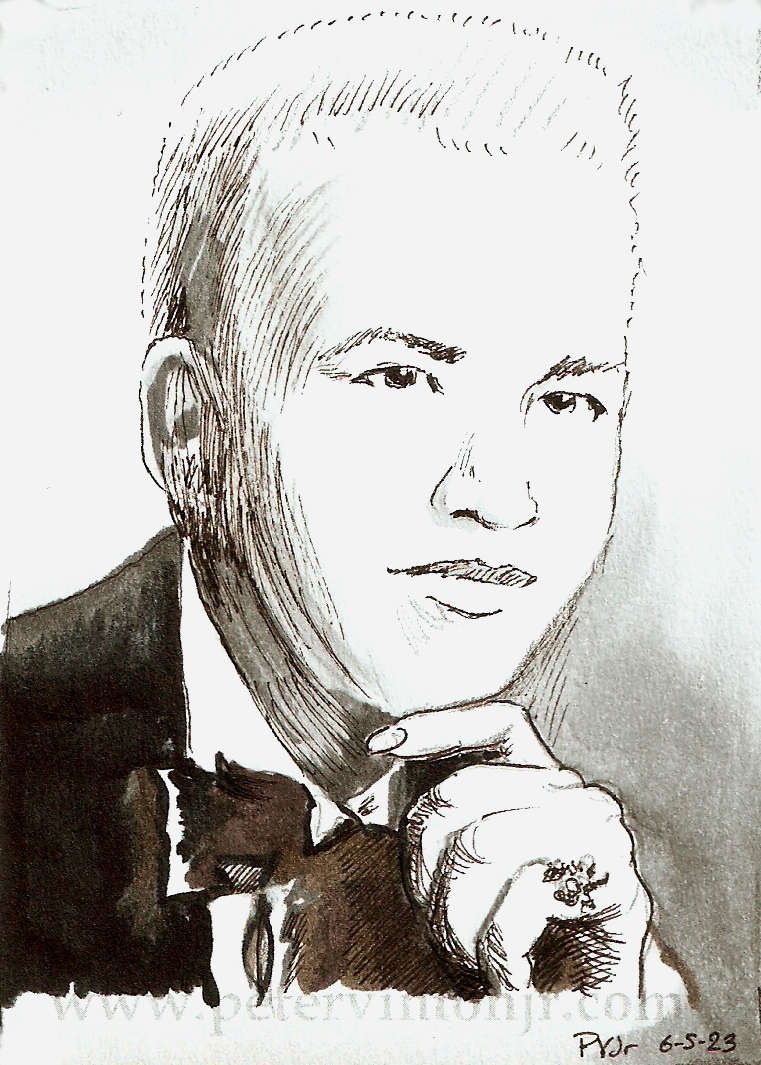
An ongoing illustrative history study
This piece originally posted 6/5/2023
Prelude | 123 | 124 | 125 | 126 | 127 | 128 | 129 | 130 | 131 | Email |
|---|
Today we celebrate the life of Stormé DeLarverie, the affectionately-named "Rosa Parks of the gay community" who may or may not have actually thrown the first punch on June 27, 1969 at the Stonewall Inn in Greenwich Village (see Lesson #94 for more about this key event). While actual accounts conflict, DeLarverie herself would on occasion make this claim, however she also chafed at the idea of naming the Stonewall Uprising a riot; such a word, to her, changed the narrative and permitted the agitators to drive the story, not the victims. "It was a rebellion, it was an uprising, it was a civil rights disobedience," she would agree, but "it wasn't no damn riot."
Born in 1920 New Orleans on an unknown date (she would later claim December 24th as her birthday), DeLarverie's African-American mother was in fact a household servant to her white father. Her parents later married and the family moved to California, but she was ultimately mostly raised by her grandfather. Not unexpectedly, Delarverie endured more than her share of bullying and harassment from other schoolchildren, due not only to her mixed race but also her tall and lean androgynous looks --which would later work to her advantage; being able to pass for either white or Black, woman or man. For a time she rode horses with the Ringling Brothers Circus but stopped after a fall. She came out as lesbian at the age of eighteen, and remained in a committed relationship with a dancer named Diana, until Diana's death in the mid-1970's.
Between 1955 and 1969 DeLarverie was the featured emcee of the touring Jewel Box Revue, significant as one of the first-ever integrated drag revues, showcasing both black and white entertainers. The revue featured men in drag, though DeLarverie was the only male impersonator: one popular gimmick was to encourage audiences to try to guess who the "one girl" was from among the revue performers. At the end Stormé would reveal herself as a woman during a musical number called, "A Surprise with a Song," often wearing tailored suits and sometimes even a moustache that made her unidentifiable. The Jewel Box Revue also drew integrated crowds of both black and white audiences, and was even featured at Radio City Music Hall and at Harlem's famed Apollo Theater.
Only a few weeks after Stonewall, on July 11, 1969, DeLarverie was one of the founding members of the Stonewall Veterans' Association, and remained an active member for many years, ultimately serving as its Vice-President from 1998 to 2000. Throughout the 1980's and the 1990's she patrolled gay and lesbian clubs and bars on lower Seventh and Eighth avenues, ever vigilant and on the lookout for anti-gay and anti-black intolerance, a responsibility she took seriously until she reached her mid-eighties. She was a regular at New York's annual Pride parade, was honored at the Brooklyn Society for Ethical Culture, and received a proclamation from then-Public Advocate (now State Attorney General) Letitia James.
For further viewing: Stormé: The Lady of the Jewel Box, a 1987 film directed by Michelle Parkerson.
"Something Like A Super-Lesbian:" Stormé's May 2014 obituary at https://hello40s.com/2014/05/28/something-like-a-super-lesbian-storme-delarverie-in-memoriam/
Next page - Lesson 128: Phill Wilson